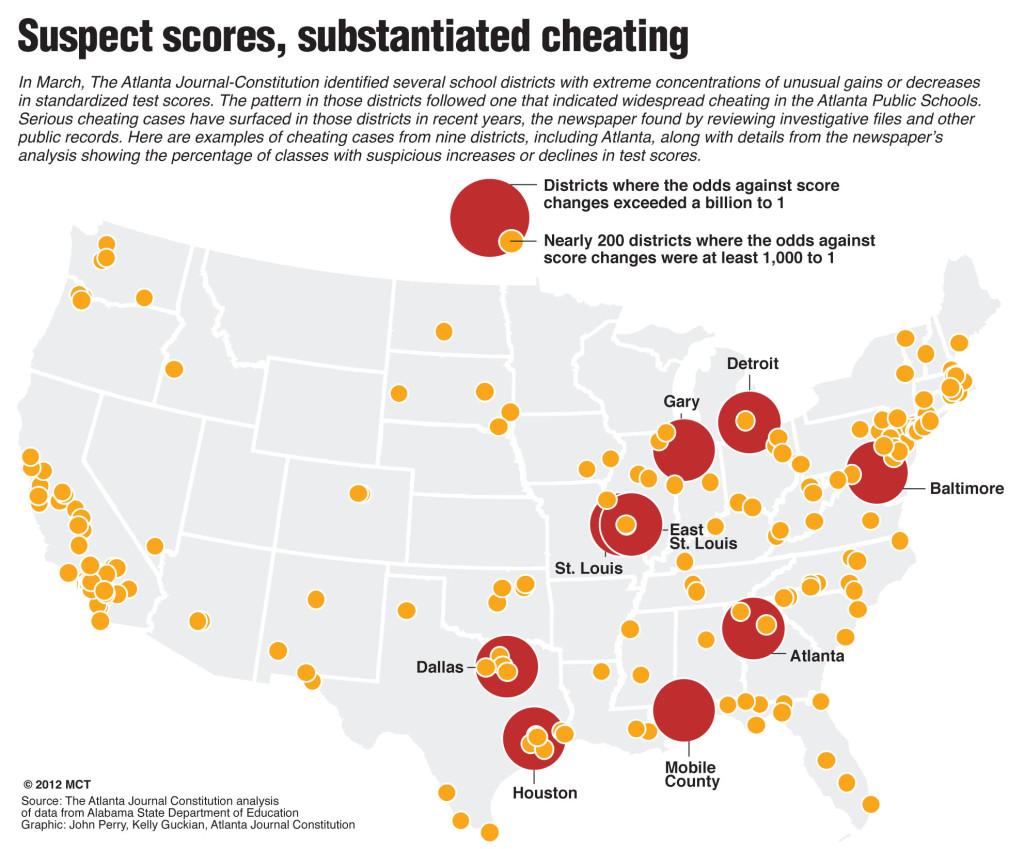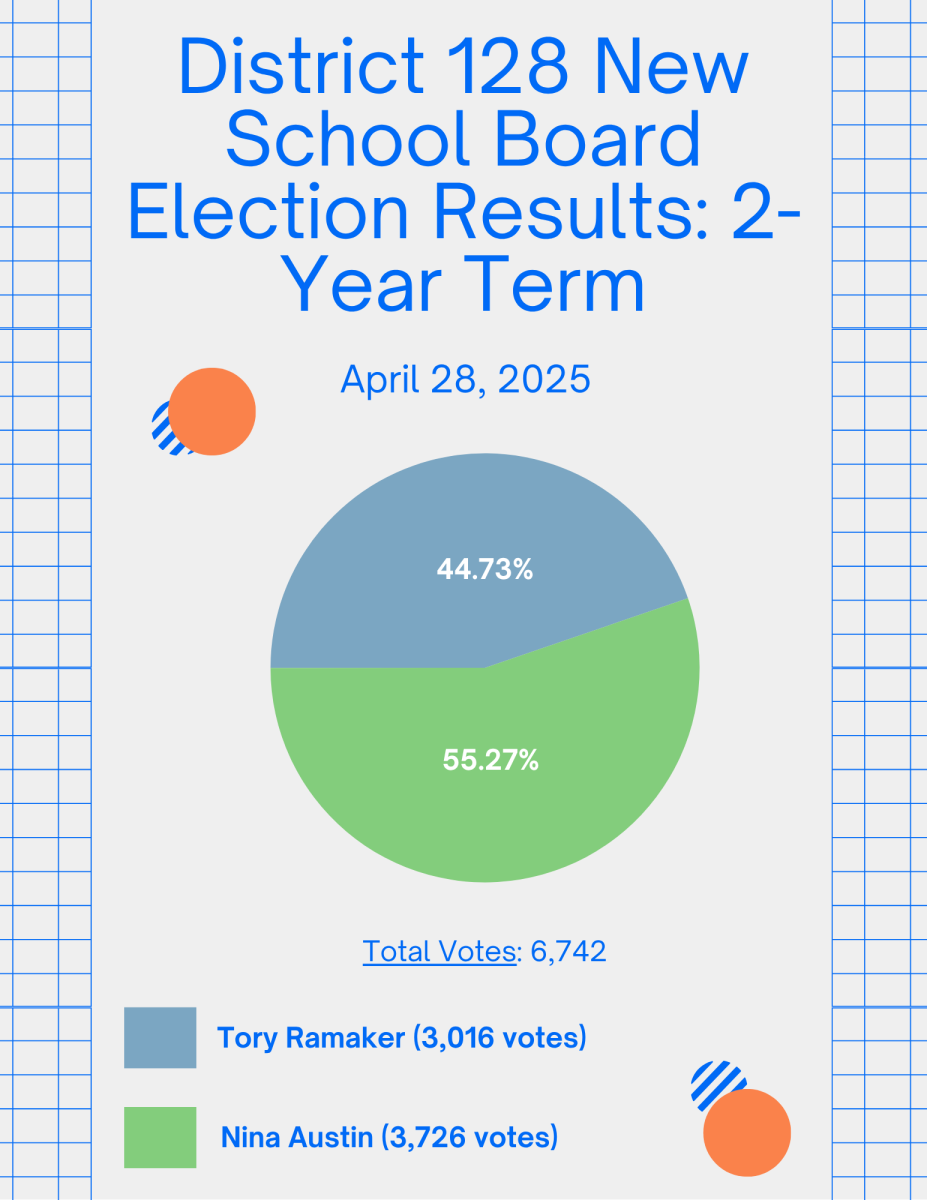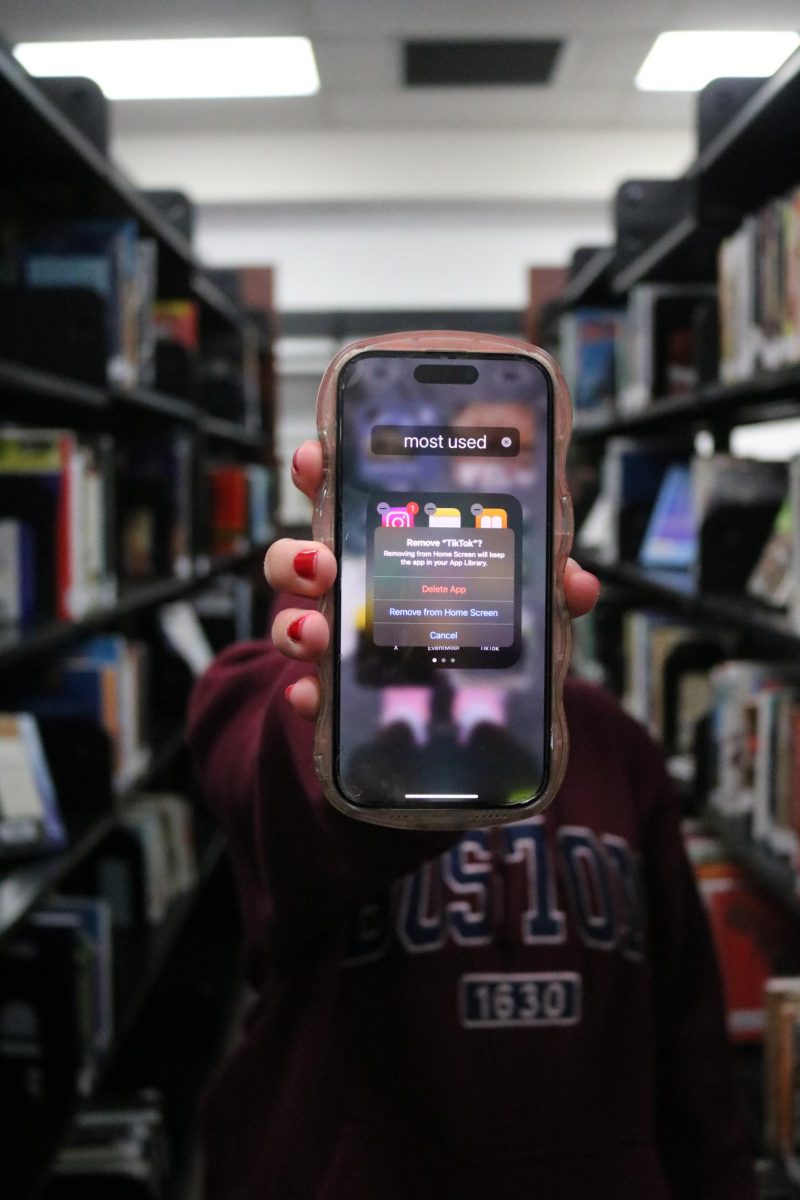Academic cheating has been a prominent issue not only in high schools across America, but right here at Libertyville High School. This generation of students is more competitive and technologically savvy than ever, making it easier and more tempting to cheat.
A recent survey of 24,000 students from 74 different high schools, conducted by Professor Donald McCabe from Rutgers Business School, found that cheating has increased drastically in the past few decades. There are many forms of cheating, such as looking over on another student’s exam, stealing ideas or words without citing them, or passing along information about a test or quiz to other students that haven’t taken it yet. The survey showed that 95 percent of high school students admitted to some form of cheating, including copying someone else’s homework. 64 percent of students admitted to cheating on a test and 58 percent admitted to plagiarism.
One LHS junior, who did not want to be named so he could speak honestly about the subject, noticed that it has become a lot easier for students to cheat.
“I definitely think it’s become easier just because of the use of cellphones. And teachers are always behind their desk, behind their computers, so it makes it easier for students,” explained the student.
According to a six-month investigation led by ABC Primetime last April, in which researchers traveled to various high schools across the country to find out how and why students cheat, it was found that this generation of students just has a different mindset about cheating. It’s become a cultural norm — something that has become so prominent in today’s schools that students don’t really care as much. The bottom line: students have become used to it.
In today’s technology based society, the methods of cheating have changed. Whether it’s looking up papers or answers online, texting friends the answers to tests, or even looking up answers during the quiz, students have access to so many resources that can easily be abused.
The internet also makes it easier for students to plagiarize. In just a few clicks, one can copy and paste an entire essay written by someone else.
However, what students commonly forget is that teachers can just as easily look up the information. Mr. Matt Leone, who teaches Earth Science here at LHS, believes using technology to cheat isn’t always the smartest move.
“It’s made it much easier for kids to cheat, but it’s also made it much easier for them to get caught. They usually fail to realize that,” said Mr. Leone, who has caught numerous students cheating at LHS.
One LHS junior, who was caught cheating last year in his English class and did not want to be named, used the computer to copy his sister’s old paper — a common method of cheating.
“I had a paper due after spring break and I didn’t want to do it. My sister had the same teacher and the same paper, so I just asked her for the paper. I just changed the name and the date. I didn’t recognize that the page numbers were different,” explained the student.
His teacher, however, did.
“My teacher told me to see her and then I had to have an awkward conversation with her,” said the student. “She made me redo the paper for half credit. I ended up getting a C in the class because of it.”
This student is just one of many who use technology to cheat. Some just get lucky and don’t get caught.
“I think people use technology [to cheat] and the teachers have no way of finding out. It’s unfair for the students who don’t cheat,” said junior Chandler Scott.
Some teachers do try to take precautionary measures to reduce the amount of cheating that occurs at LHS.
“Most teachers do give out different forms of tests, so that kind of reduces it,” explained freshman Jenna El Ghatit.
Ms. Meredith Tarczynski, an English teacher at LHS, has implemented different class rules to try to reduce the number of students who pass along information about tests to students in later periods.
“I try to combat that by telling students that were will be a slight curve on the test, but the curve is the same for all classes. So if period one tells period eight what’s going on, and period eight gets a better score, that means the curve for all classes lessens, which does period one more harm than good,” explained Ms. Tarczynski.
However, some teachers aren’t very strict when it comes to disciplining students. “Teachers are really general about students cheating. I mean they say things like ‘keep your eyes on your own paper’ but they don’t actually try to stop it and try to see who’s cheating,” said Scott.
But cheating does have its consequences. The Libertyville High School cheating policy in the student handbook states that “any situation where a student is found to be cheating or plagiarizing may result in no credit for the particular assignment and the LST will be notified with each incidence of cheating.” If students are caught cheating more than once, it could result in a failing grade for the course, LST-imposed consequences, and it could negatively impact participation in school activities and athletics, like being asked to sit out of games or meets.
As far as the academic consequences go, teachers agree that different “levels” of cheating require different punishments. For example, a student who is caught plagiarizing an entire essay will receive a punishment much greater than a student who glances over at someone else’s test.
“Just like with anything else, the punishment has to fit the crime,” said Mr. Leone.
So the question is simple: why do students cheat? One reason is the amount of pressure that is put on students to excel academically. The pressure to get good grades is so significant that students are willing to do whatever it takes to get that A.
“Everyone just wants to get that good grade because everyone knows that’s what colleges want,” said the LHS junior who spoke openly about cheating.
Another reason why students cheat is students simply not knowing the information on the exam.
“Nine out of ten times it’s panic due to lack of preparation,” said Mr. Leone.
Cheating has also become more widely tolerated, not only among students, but also among parents and teachers, according to an article published by The New York Times last year. Research has shown that parents are more accepting of their children cheating. Parents fail to give children strong consequences for their deceitful actions, making students believe what they’re doing is adequate.
Mr. Leone said that a decrease in cheating will come when students learn how not to cheat.
“Teaching kids how to learn is paramount. They have to have certain skills and one of these skills better be how to learn and how to do it yourself,” explained Mr. Leone.
Ms. Tarczynski also believes that students need to learn the ethics behind cheating.
“Technology increases the temptation to cheat. But ultimately I would say what we’re trying to do is teach students the ethics. Even if the temptation is there, don’t do it,” said Ms. Tarczynski.
In hopes to bring awareness to academic cheating, specifically plagiarism, Link Crew has added a new lesson plan that will be taught this year over the course of a few days. Ms. Tarczynski played a lead role in creating the lesson plan that will be taught to the freshmen in Link Crew. Through a series of activities, discussions, and worksheets, freshmen will hopefully learn what constitutes plagiarism and how to guard against it.
Many times students fail to realize just how serious cheating is. It may not seem so significant in high school, but this “bad habit” could turn into something more severe.
“If students go to college and they get caught cheating, it’s no longer a matter of getting a zero. It’s no longer a matter of getting mommy and daddy mad at you. It’s now a matter of being removed from an academic institution,” explained Mr. Leone. “The punishments get much higher as you go up. You go into the workforce, now we’re not talking about getting kicked out of college, now we’re talking about losing a job – losing a livelihood.”





![Mr. Abullh Ali, manager/assistant, helps open Queen Yemeni Coffee in downtown Libertyville at 606 North Milwaukee Ave. With the help of employees such as manager and LHS senior Yousef Taha, they are able to bring the Yemeni and Ethiopian culture to Libertyville by using their Queen spices, cinnamon and cardamom in their drinks such as Adani Chai, which is inspired by Sheda, the Queen of Yemen and Ethiopia. “The history of our coffee [is] a long history and we believe that Yemen and Ethiopia started the coffee and we are bringing something unique to the community,” Mr. Ali said.](https://www.lhsdoi.com/wp-content/uploads/2025/04/Photo-1-1200x800.jpg)



